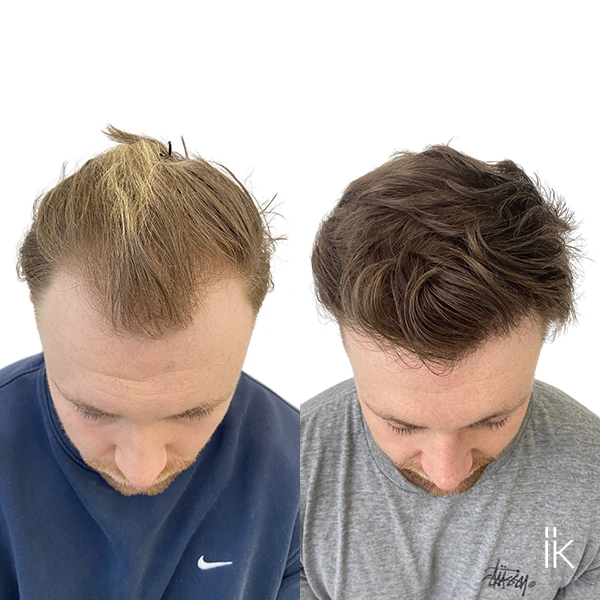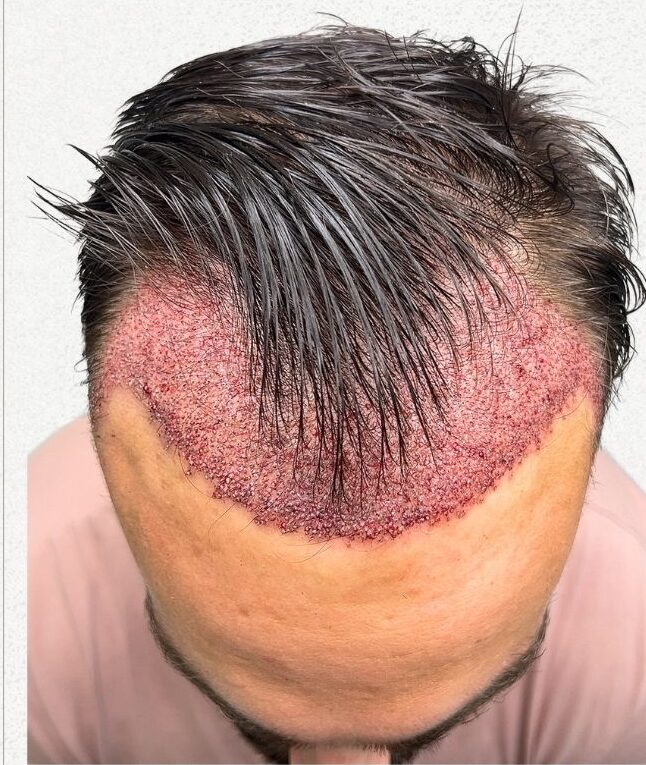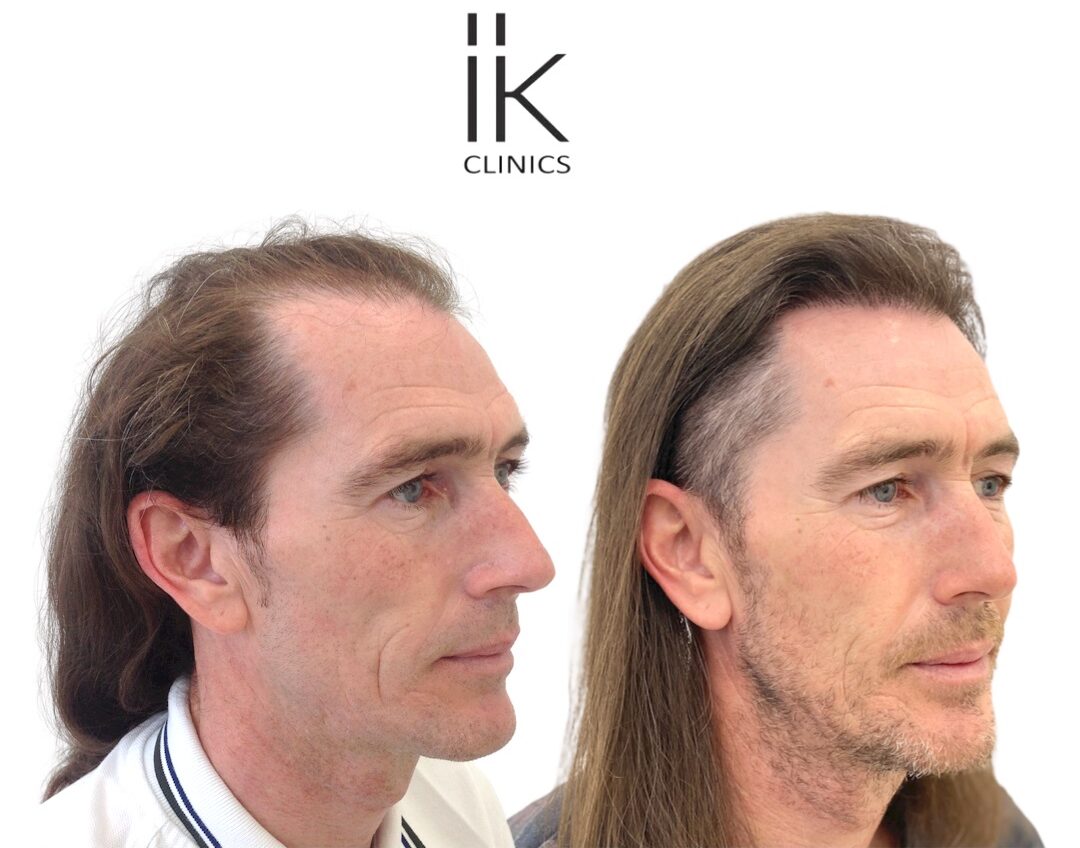However, one crucial factor that often gets overlooked is the role hormones play in hair loss and hair restoration. Hormones influence everything from hair growth to hair loss patterns, and understanding how they work can help you achieve better, longer-lasting results after a transplant.
In this guide, we’ll explore the connection between hormones like testosterone and dihydrotestosterone (DHT), their impact on hair health, and what you can do to regulate them for the best transplant outcome.
The Impact of Testosterone and DHT on Hair Loss
Hormones are responsible for regulating many bodily functions, including hair growth. Your hair goes through different cycles – growth, rest, and shedding.
Testosterone, the primary male sex hormone, plays an important role in this process. While it doesn’t directly cause hair loss, it can be converted into DHT, a more potent form of testosterone.
DHT is the real culprit behind male and female pattern baldness. Some people’s hair follicles are more sensitive to DHT, which leads to shrinkage and eventual hair loss. This process, known as miniaturisation, results in thinner, weaker hair that eventually stops growing altogether.
Not everyone with high testosterone levels will experience hair loss. The key issue is how much of your testosterone gets converted into DHT and how sensitive your hair follicles are to this hormone.
DHT binds to receptors in the scalp and, over time, weakens hair follicles, particularly in areas like the crown and hairline. As follicles shrink, the hair becomes finer and eventually stops growing. If left unchecked, this process can lead to significant hair thinning and baldness.
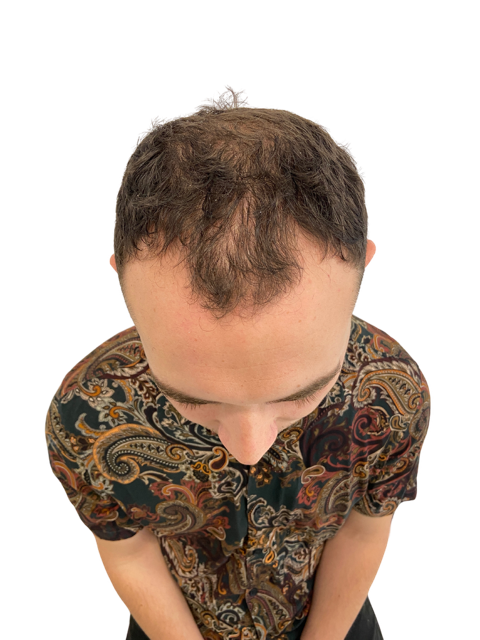
Do Hair Transplants Stop Hormonal Hair Loss?
Many people assume that a hair transplant is a permanent solution to hair loss, but this is only partially true.
Transplanted hair is typically taken from the back or sides of the head – areas that are naturally resistant to DHT. While these hairs are likely to remain intact, the rest of your natural hair may still be vulnerable to hormonal changes.
If the underlying cause of hair loss is not addressed, non-transplanted hair may continue to thin, leading to an uneven or patchy appearance over time. This is why post-transplant hormone regulation is so important.
How to Regulate Hormones After a Hair Transplant
One of the most effective ways to manage DHT levels is through medication. Finasteride, commonly known as Propecia, is a prescription drug that blocks the enzyme responsible for converting testosterone into DHT.
By reducing DHT levels, finasteride helps slow down hair loss and preserve existing hair. Another option is dutasteride, which works similarly but is considered more potent. However, both medications should only be taken under medical supervision, as they may have side effects.
For those who prefer a more targeted approach, topical solutions such as finasteride or DHT-blocking shampoos can be applied directly to the scalp. These products aim to reduce DHT levels at the source, potentially minimising systemic side effects.
Additionally, maintaining overall hormonal balance is crucial. Thyroid disorders, for example, can contribute to hair thinning, so it may be beneficial to have your thyroid levels checked if you are experiencing unusual shedding.

Diet and Lifestyle for Hormonal Balance
Diet also plays a significant role in hormone regulation and hair health.
Consuming foods rich in zinc, such as nuts, seeds, and shellfish, can help regulate testosterone levels. Protein sources like lean meats, eggs, and fish provide essential amino acids needed for hair structure, while green vegetables such as spinach and broccoli support estrogen balance.
Healthy fats from avocados, olive oil, and fatty fish promote overall hormone stability, contributing to healthier hair growth.
Stress is another major factor that affects hormone levels. High stress levels can lead to an increase in cortisol, a hormone that disrupts testosterone balance and contributes to hair loss.
Incorporating stress-management techniques such as meditation, regular exercise, and quality sleep can help regulate hormones and support overall hair health.
Should You Start Hormone Therapy Before a Transplant?
If you are planning a hair transplant, it may be beneficial to start hormone regulation treatments before surgery.
Some doctors recommend stabilising hair loss beforehand to ensure you don’t continue to lose hair around the transplanted area. If you have experienced rapid hair loss in a short period, have a family history of significant baldness, or have ongoing thinning despite using treatments like minoxidil, pre-surgical hormone regulation may be worth considering.
Taking proactive steps before your procedure can lead to better long-term results and a more natural-looking outcome.
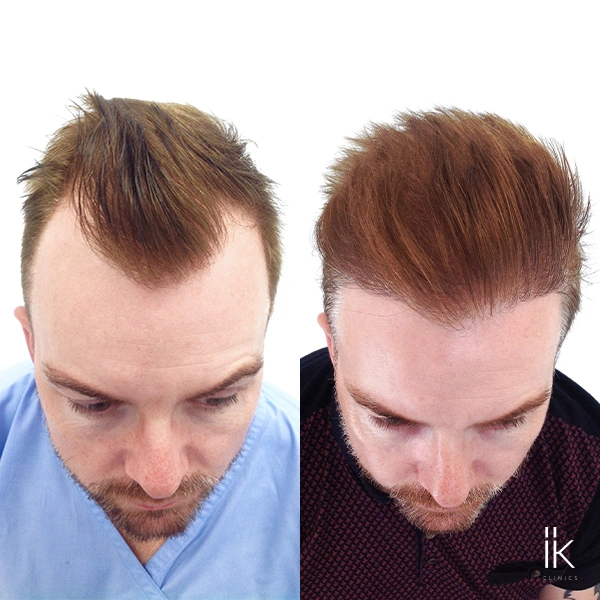
Conclusion
Hair transplants can be life-changing, especially for restoring confidence and improving self-esteem. However, hormones play a significant role in determining the success of the procedure.
By understanding the effects of testosterone, DHT, and other hormones, and taking steps to regulate them, you can protect your investment and ensure the best possible results. Whether it’s through medication, lifestyle changes, or a combination of both, managing your hormones is just as important as choosing the right surgeon.
If you’re considering a hair transplant, consult with your doctor about your hormonal health and what steps you should take before and after surgery. A proactive approach today can mean thicker, healthier hair for years to come.
About IK Clinics
At IK Clinics, we’re not afraid to say that we’re proud to lead the way. Our expert team, advanced technology, and commitment to patient care ensure you get the best experience from start to finish.
What’s more, we offer a range of services in hair restoration, like FUE, Stem-cell and Plasma Therapy, along with various anti-aging treatments. Get in touch to find out more or book a consultation.
